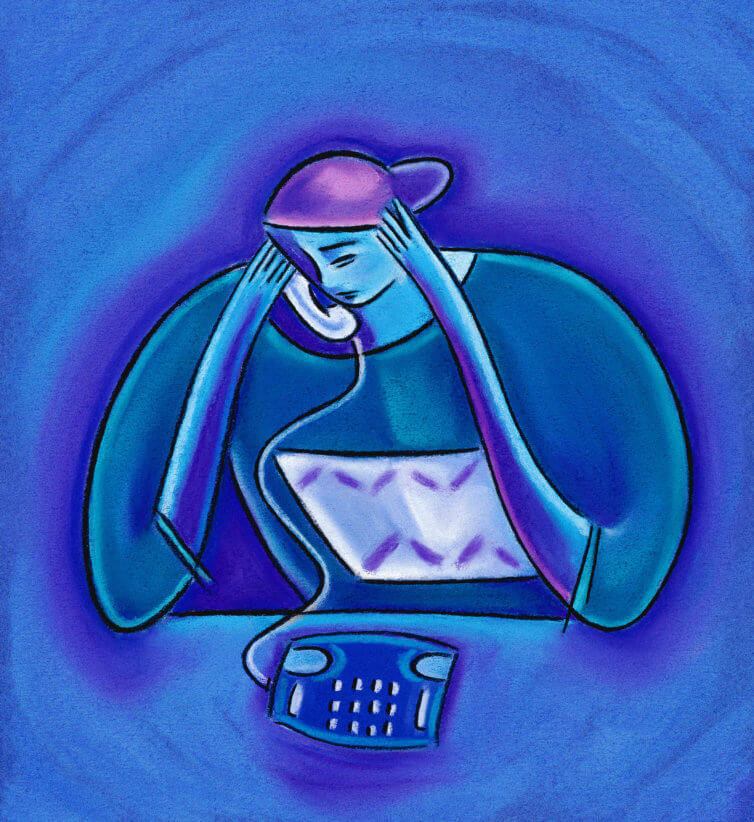
988 What New York Families Need To Know about this Hotline and NYC Well
This past Saturday the United States launched the new 988 Suicide & Crisis Lifeline. With mental health being on the forefront of the news lately, many people, especially parents, may feel some relief that active measures are being taken to address mental health. But what does this mean for New York residents and children?
Young People and Suicide in the United States
Suicide can plague anyone, at any age—including children. The United States had one death by suicide every 11 minutes in 2020, according to the Centers for Disease Control and Prevention (CDC). In 2020, suicide was among the top nine leading causes of death for people ages 10-64. It was the second leading cause of death for people ages 10-14 and 25-34.
Other alarming CDC data shows that suicide is one of the top three causes of death among kids ages 15-19. Young people who identify as lesbian, gay or bisexual have higher rates of suicidal thoughts and behavior compared to their peers who identify as heterosexual.
What You Need to Know About the 988 Suicide and Crisis Lifeline
As of last Saturday, “988” became the three-digit phone number to connect to the 988 Suicide & Crisis Lifeline—formerly the National Suicide Prevetnion Hotline. By calling or texting 988, people connect with mental health professionals with the 988 Suicide & Crisis Lifeline.
The lifeline, which also links to the Veterans Crisis Line, follows a three-year joint effort by the U.S. Department of Health and Human Services (HHS), Federal Communications Commission (FCC), and the U.S. Department of Veterans Affairs (VA) to put crisis care more in reach for people in need.
The new number is designed to be easier to remember, which is especially important for anyone going through a mental health crisis. While the 10-digit number used by the former National Suicide Prevention Lifeline–800-273-8255– is still operable, the shorter number is designed to make crisis care even more accessible. It also helps streamline mental health assistance, so people can get faster and more appropriate support than by calling 911–all factors that can possibly help lessen the stigma so often associated with mental health conditions.
The 988 Suicide & Crisis Lifeline is a network of more than 200 state and local call centers funded by the HHS through the Substance Abuse and Mental Health Services Administration (SAMHSA). In 2021, the lifeline received 3.6 million calls, chats, and texts. That number is expected to at least double within the first full year after the 988 transition, according to the FCC.
988 Resources to Support Youth
Teens and preteens are encouraged to contact 988 if they are in a suicidal crisis or experiencing emotional distress. Specific resources for youth include:
- The 988 Suicide & Crisis Lifeline: Contacting 988 gives callers 24/7 access to trained counselors located in over 200 crisis centers who will listen, provide support and connect the caller to any necessary resources.
- Youth Resources: Teens and pre-teens are encouraged to contact 988 if they are struggling with family conflicts, relationship hardships, school pressures–anything that has them feeling stressed or in need of support. Additional resources for youth are available on the website.
- Black Mental Health: The suicide rate among Black youth has been found to be increasing faster than other racial and ethnic groups, according to the crisis lifeline. Resources are available on the website to to support both Black youth and adults.
- LGBTQ+ Support: Resources are available on the website to help members of the LGBTQ+ community who may be struggling. Information is also available on how to support LGBTQ+ friends and loved ones.
Local Concerns About 988
While 988 is a tool for everyone nationwide to use, geolocation services are not currently enabled for the number. This means the lifeline automatically routes the calls by the area code associated with the calling device to the designated crisis center for that area code–even if that person lives in NYC.
The FCC, one of the partner agencies behind 988, is addressing the issue.
“Call routing and automated location information are related location issues but involve different technical, legal, privacy and cost considerations,” a spokesperson for the FCC said. “The FCC recently hosted a 988 Geolocation Forum to discuss this issue and is considering recommendations for next steps that are in line with our rules.”
NYC Mayor Eric Adams, along with the Mayor’s Office of Community Mental Health (OCMH), announced on Monday an expansion of the city’s mental health helpline—NYC Well.
“New York City’s NYC Well line already far exceeds federal standards and as the rollout of the 988 crisis line continues, I urge the federal government to quickly resolve the geolocation issues present so all New Yorkers, regardless of area code, can automatically reach our local, comprehensive services,” the mayor said.
In the meantime, NYC is encouraging all New Yorkers, especially those without a New York City area code, to continue to call NYC Well directly to best ensure a direct connection to local services.
The expansion, funded by a $10.8 million investment from the NYS Office of Mental Health (OMH), will provide more staff for increased access to crisis counseling, peer support, information, and referral to ongoing behavioral health services. The increase in capacity will allow NYC Well counselors and peer support specialists, specifically, to answer up to 500,000 calls, texts and chats from New Yorkers between July 2022 and June 2023—a nearly 20% increase in capacity from the previous year, according to the mayor’s office.
“The expansion of NYC Well means more New Yorkers served with critical mental health resources and support, whenever, and however they need,” Adams said.
What You Need to Know About NYC Well
NYC Well provides a point of entry to the city’s mental health and substance use services. It’s available 24 hours a day, every day of the year. New Yorkers in need can get help by calling 888-NYC-WELL (888-692-9355), text messaging “WELL” to 65173, or using NYC Well’s web-based chat.
The helpline is free and confidential, and is available for anyone seeking help for mental health and/or substance misuse concerns. It’s operated by Vibrant Emotional Health, a mental health service, on behalf of the NYC Department of Health and Mental Hygiene.
Counselors at NYC Well
According to the mayor’s office, when New Yorkers reach out to NYC Well, they will be connected to a trained counselor or peer support specialist—someone with lived experience with mental health and/or substance-use challenges—who will listen and support them.
The mayor’s office did not respond to inquiries about whether or not counselors are licensed professionals.
Both NYC Well and the 988 website have many resources available for parents and others who know a child who might be suffering from depression or thoughts of suicide.
Additionally, NYC advises New Yorkers to call 911 if they know someone is at immediate risk of hurting themselves or in immediate danger.
Psst…check out the Best Podcasts For Kids That Parents will Love













